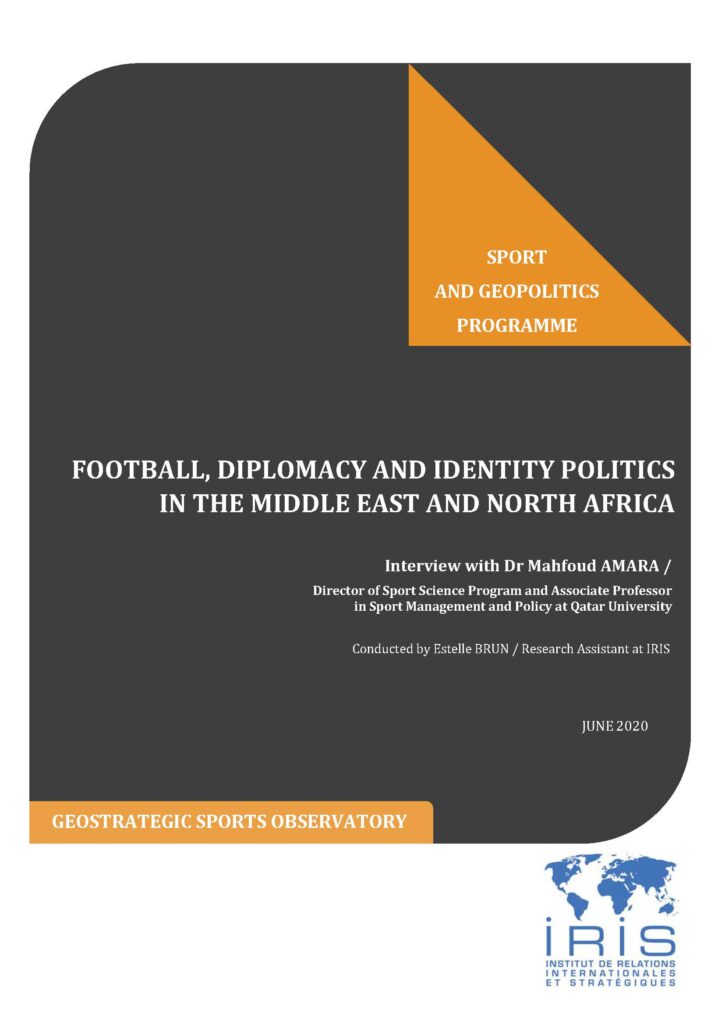Notes / Sport et géopolitique
4 juin 2020
Football, Diplomacy and Identity Politics in the Middle East and North Africa

One year ago, the 32nd edition of the Africa Cup of Nations (AFCON) debuted in Egypt, culminating in Algeria’s victory over Senegal on July 19th, 2019.
ON SPORT DIPLOMACY AND MEGA-SPORTING EVENTS IN AFRICA
For the first time, the biennial competition was held during the summer with a total of 24 participating national teams. AFCON, the most popular sporting event of the region and among the most important football competitions, has been gaining popularity worldwide with, for example, the British broadcaster BBC’s increase coverage to 13 languages for the 2019 edition and its finale’s high audience scores in France where it was followed by 1.6 million viewers.
IRIS: What explains AFCON’s increasing global popularity?
MAHFOUD AMARA: Starting from 1980s and 1990s, the internationalisation of African football first occurred thanks to the migration of African footballers from North Africa and Sub-Saharan Africa to Europe to play in top European leagues. In 1998, the Fédération Internationale de Football Association (FIFA) increased the number of represented African teams from three to five in the World Cup, giving African football more international exposure. This has extended lately to North America, Asia and even the Asian subcontinent, with the emergence and development of football in countries like India, Vietnam, and, of course, China.
The increasing presence of football academies of top European clubs in Africa attracting young talents to play in Europe (e.g. Ivory Coast and Ghana) also contributes to the rising popularity of African football and its competitions. More lately, the reverse migration of Europeans of African descent selected to play for the national team of their country of origin increased the level of AFCON and other competitions between African countries. These have all contributed to the globalisation — or glocalisation — of African football…


